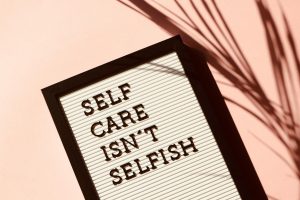The Illusion of Perfection: Social Media and Your Self-Worth

By Sibgha A
Social media has become an inseparable part of our lives – from Instagram to Facebook – we are constantly exposed to images and stories showcasing a seemingly perfect world. However, behind those glossy posts lies a troubling reality: social media can significantly impact our self-worth, often in ways we don’t even realize.
Social media platforms are essentially highlight reels, where users post their most glamorous, exciting moments. This isn’t necessarily a bad thing, after all, who wouldn’t want to share their best experiences? This constant display of perfection, however, creates an illusion that everyone else’s life is flawless while ours is filled with mundane struggles.
The truth is that these images are carefully curated, often edited, and filtered to present an idealized version of reality. The perfect vacation photo or enviable relationship update doesn’t show the arguments, stress, or less-than-picture-perfect moments that everyone experiences. But as we scroll through these images, it’s easy to forget this and fall into the trap of comparison.
The Comparison Trap
Comparison is often described as the thief of joy, and nowhere is this more evident than on social media. With each swipe, we measure our lives against the edited highlights of others. We question our appearance, achievements, and choices, wondering why our lives don’t stack up.
This comparison can lead to a vicious cycle of self-doubt and insecurity. Instead of recognizing our unique qualities, we become obsessed with meeting unrealistic standards set by others. A study published in Computers in Human Behavior found that heavy social media users often experience lower self-esteem and higher levels of anxiety. The constant comparison can leave us feeling inadequate and unfulfilled.
Enter FOMO – the Fear of Missing Out – which is almost synonymous with the social media experience. FOMO creates an urgent need to stay updated on what others are doing, driving us to constantly check our feeds for fear of missing something exciting.
This fear often leads to a sense of dissatisfaction with our own lives. Instead of appreciating what we have, we become fixated on what we’re not doing or experiencing. We might be at a gathering but more interested in the parties we’re missing out on, reducing our enjoyment of the present.
The Impact
The illusion of perfection and relentless comparison can have significant impacts on mental health. Numerous studies indicate that excessive social media use is linked to feelings of loneliness, depression, and anxiety. When likes and followers become measures of self-worth, we lose sight of our true value.
Moreover, the pressure to maintain a perfect online persona can be overwhelming. Many feel compelled to project an image of success and happiness, even when they’re struggling, leading to a disconnection between their real and virtual selves. This disconnect further exacerbates feelings of inadequacy and isolation.
So, how do we break free from this illusion? It starts with recognizing that social media doesn’t represent real life. Here are some practical steps to foster a healthier relationship with these platforms:
1. Limit Screen Time: Set boundaries for your social media usage to prevent it from taking over your life.
2. Curate Your Feed: Follow accounts that inspire you and uplift your spirits. Unfollow those that trigger negative emotions.
3. Practice Gratitude: Focus on the positives in your life and regularly remind yourself of your achievements.
4. Engage Authentically: Interact genuinely with others on social media. Share your thoughts and be open about your experiences.
5. Take Breaks: Unplugging from social media, even temporarily, can offer a much needed reset and help you reconnect with reality.
6. Be Real: Embrace authenticity by showing both the highs and lows of your life. This can be liberating and remind others that it’s okay not to be perfect.
Ultimately, life isn’t about being perfect, and neither is social media. Embracing imperfection can be incredibly freeing. When we stop comparing ourselves to the curated lives of others, we can focus on our journey, growth, and happiness.
Social media isn’t inherently bad – it’s a tool that can either uplift or diminish us, depending on how we use it. By being mindful of its influence on our self-worth, we can transform it from a source of envy into a platform for connection and inspiration.
Let’s break free from the illusion of perfection and celebrate the messy, beautiful reality of our lives. It’s our imperfections that make us unique and human, and that’s something worth cherishing.






